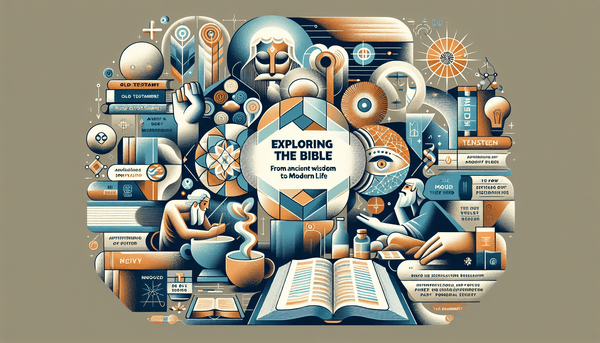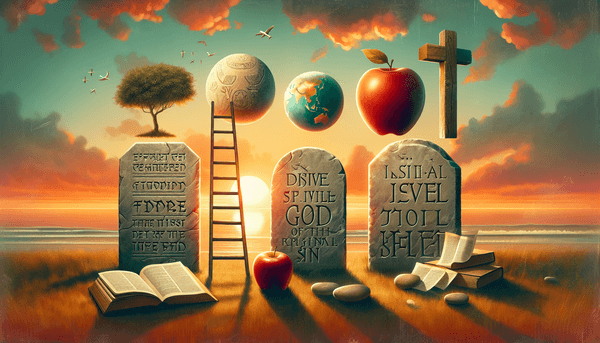The Old Testament vs. The New Testament
The Old Testament serves as a foundation for Jewish history and religious law, featuring books like Genesis and Exodus which detail the creation of the world and the exodus of the Israelites from Egypt. It also includes poetic and wisdom literature such as the Psalms and Proverbs, offering prayers and practical life advice. The prophetic books, with their foretellings of a coming Messiah, bridge the gap to the New Testament, which begins with the fulfillment of these prophecies in the Gospels. The life and ministry of Jesus Christ are at the heart of the New Testament, as chronicled in Matthew, Mark, Luke, and John, culminating in the account of his death and resurrection. The subsequent growth of the early Christian church is then documented in the Acts of the Apostles and the Epistles, written by Paul and other early Christian leaders. These texts highlight the continuity of God's plan as expressed in Matthew 5:17, where Jesus says, 'Do not think that I have come to abolish the Law or the Prophets; I have not come to abolish them but to fulfill them.'
Biblical Perspectives on Spirituality and Substance Use
The Bible provides guidance on living a life that is spiritually attuned and in alignment with God's will. Spirituality, according to biblical texts, involves orienting one's life towards the Holy Spirit, as opposed to the desires of the flesh. The apostle Paul writes in Galatians 5:22-23 about the 'fruits of the Spirit,' which include love, joy, peace, forbearance, kindness, goodness, faithfulness, gentleness, and self-control. These are the marks of a life led by the Spirit. When addressing the topic of substance use, the Bible emphasizes the importance of self-control and respecting the body as the temple of the Holy Spirit (1 Corinthians 6:19). It also advises obedience to governing laws and authorities (Romans 13:1), which includes adhering to regulations regarding substances like marijuana.
FAQ
Q: What is the difference between the Old and New Testaments?
A: The Old Testament contains religious texts and stories written before the birth of Jesus Christ, focusing on the history and religious laws of the Jewish people. The New Testament contains texts written after his birth, focusing on the life, teachings, death, and resurrection of Jesus Christ, as well as the early Christian church.
Q: What are some key themes in the Book of Proverbs?
A: The Book of Proverbs emphasizes wisdom, integrity, and the fear of the Lord. It offers practical advice for daily living, contrasting the outcomes of the righteous and the wicked, and advocating for virtues like honesty and diligence.
Q: Can you provide some Bible verses that speak to the power of prayer?
A: Certainly, for instance, Philippians 4:6 says, 'Do not be anxious about anything, but in everything by prayer and supplication with thanksgiving let your requests be made known to God.' This verse highlights the importance of bringing our worries and requests to God in prayer.
Q: How does the Bible address substance use and spirituality?
A: The Bible encourages living by the Spirit and exhibiting self-control. It teaches that the body is the temple of the Holy Spirit and advises obedience to governing laws, which includes regulations on substance use. Verses like Romans 13:1 and 1 Corinthians 6:19 provide guidance on these matters.





